Te Rina McRae-Hape Kaitautoko for the Tauranga Māori Business Association
Te Rina McRae-Hape is a proud Māori wahine and is honoured to serve as the Kaitautoko for the Tauranga Māori Business Association. With a rich background spanning 19 years in the banking sector, she brings a wealth of experience and a deep passion for uplifting our people and fostering sustainable growth.
The six pou of Mata Ārahi Manomano drive the questions we have used to profile Māori & Pacific role models, in the Service sector.
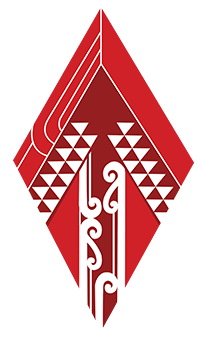
|
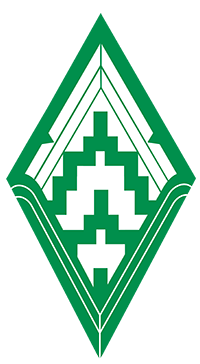
|
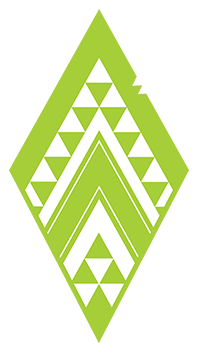
|
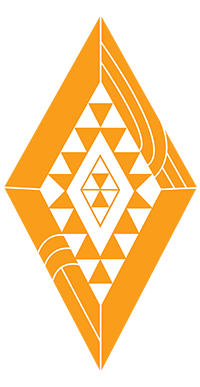
|
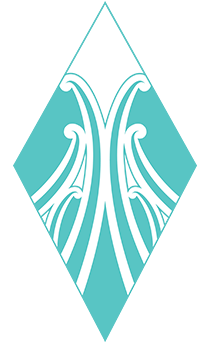
|
|

Representing the levels and forms of aroha that can be found throughout our lives across our many communities. We acknowledge the wide range of obstacles and the journey it takes to overcoming everything that stands in our way to expressing aroha within.
Ko Te Rina McRae-Hape tōku ingoa.
Ko Tākitimu te waka
Ko Ngaruroro te awa
Ko Kahuranaki ki te maunga.
Ko Mihiroa, ko Houngarea, ko Taraia ngā marae
Ko Ngāti Kahungungu te iwi.
He pānga hoki ōku ki Nederlands.
Kei Maketū mātou ko tōku whānau e noho ana.
Nā reira, e tika ana me mihi atu ki te haukāinga o te whenua tapu nei o Maketū
I am the Kaitautoko for the Tauranga Māori Business Association (TMBA), among other pōtae that I wear.
I’m grounded by my identity. I’m fortunate enough to have a foot in the western world of mahi and Te Ao Māori. My strength is that I am the bridge between Te Ao Māori and the Western ways.
I don’t like to say we have weaknesses; rather, areas of improvement that make us stronger as we work on them.
My learning process has been a challenge over the last nine years. I had a hidden injury nine years ago which changed my outlook on life. I had to relearn a lot of things, from writing to articulating what I’m trying to say and to retain information.
I was provided different tools from my neurologist, psychologist, and OT, which, fortunately and unfortunately, I had to learn in ways that fit the English language rather than te reo Māori. I am on that journey. Although it’s a bit different and taking a bit longer, that is kei te pai for me.

Seeking guidance from our kaitiaki Hiwa-i-te-rangi, we take a journey through our different aspirations, goals and dreams. This tohu acknowledges hard work, wisdom, the reach of ones goals and the desire that comes from this mahi.
I was raised in Heretaunga and got some mahi up in Auckland/Tāmaki Makaurau, much to the distress of my parents. My first role was as a bank teller. I spent 19 years in total with one of the big four banks. Someone in a leadership role once told me I would never amount to anything, which became my driver and motivation.
My last role in the bank over those years was as a Senior Commercial and Agri Manager, managing quite a large team.
My hidden illness was a head injury playing rugby league. There’s about six months of my life I don’t remember, but I’m proud to say I’m probably the happiest and healthiest I’ve been in the last nine years. Every day, I’ve learned to live with it, and it’s a part of who I am.
My injury required me to find balance in my daily routine and life, my recovery. I still have all the skills and work experience that I remember pre-injury. Anything after the injury is a bit different for me to process.
I needed something I was passionate about to hold and retain because retention for me is a bit more difficult, and for me, my passion is our people, humility, and uplifting our people. I saw the challenges that our Māori were facing pre-injury, and I wanted to be a part of that change. That’s what has landed me as a Kaitautoko for TMBA.

With adventure comes challenges as well as obstacles to overcome. We stand proud as we overcome these obstacles. This tohu draws inspiration from the Niho Taniwha and Aramoana patterns. We acknowledge reaching our destination and preparing ourselves for the many new adventures ahead.
I started as a bank teller for three years. I also worked in the call centre for three years – my roles seemed to come in three-year chunks. Over those 19 years, I progressed to team lead of a branch in a small region.
I moved into the commercial and agri space during the Christchurch earthquake. Being part of the project to support Christchurch from a financial perspective, whether it was access to money because ATMs weren’t working or using common sense and life experiences, was invaluable. You can’t teach that.
I also had the opportunity to set up an outsourcing branch in India. It was difficult at the beginning – there is a huge difference in their way of working – but within a couple of weeks they were inviting me to their whānau festivals and events. I was really able to embrace their culture.
There I made lifelong friends I can call whānau. Some started with a small income, but now they have roles that allow them to provide their families more. Instead of living in what were called “the slums”, they now have actual homes. The impact it had on them and their whānau, being able to put kai on the table, is fulfilling for me.

These patterns represent bravery and being strong in the face of adversity. We strive to be persistent and positively challenge anything that threatens to alter, restrict, and put a barrier in the way of our desired pathway.
You can’t see it, but the effects my hidden injury has on me are significant. During my recovery, I knew that life wouldn’t be the same as it was pre-injury.
For me, it was all about writing everything down. I had to relearn everything, and I have notebooks galore that helped me remember what happened and what I was doing each day. This helped me keep going. By removing all the material wants and luxuries, I became more grounded.
Pre-injury, I was very career-driven and motivated by one sentence from a leader. I worked hard to ensure I could excel, always putting things in place to achieve my goals. Post-injury, I view it as a second chance at life. How can I become a person who helps uplift our people, our whānau, our hapori? Especially with the changing times and economy, how can I navigate that space?
It’s about utilizing my pre-injury skill set and life experiences, along with my current and new skills.

Here we are drawing inspiration from the Pūhoro pattern. The pūhoro is used here to represent the strength, speed and agility needed to move forward and accomplish ones goals.
I’ve never finished school, so I never went to university. If I were to rewrite my past, I might have taken a different path, but I have no regrets because it’s made me who I am today. Life experience and work experience are my qualifications. No matter what mahi I do, there are always challenges.
If you can do mahi that you find passion in, the mahi becomes you, allowing you to thrive and succeed in whatever you put your mind to. It doesn’t feel like a job; it becomes a career. The materialistic things, like the byproducts of what you do, are just that—byproducts. If you really instill and do the best you can in something you’re passionate about, that will be the byproduct that puts a roof over your head, food on the table, and provides financial support for your whānau and yourself.
For me, if you’re wanting to go into a typical role or work with Māori, it all comes down to finding the right balance. You are who you are, and everyone has something unique to share.
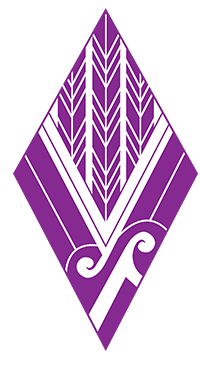
Success, best mentioned in the whakatauki “Tūwhitia te hopo, mairangatia te angitū!” Feel the fear and do it anyway!
I am very fortunate the Tauranga Māori Business Association board truly understands my invisible illness and the impacts it can have on my day-to-day life. They work with me to succeed collectively. It allows growth not just for me, but also creates sustainable and intergenerational impacts, building a legacy for our whānau and our mokopuna. These are great moments for me.
I’ve done a range of different things, from volunteering to other activities. What has really made me feel engaged and connected are the people, especially our Māori, because I know that’s where my skills lie. Those voluntary activities, even if they were short-term, helped prepare me for where I am now.
Another memorable moment was my first mentoring of a Māori member. Seeing their success from the first time I met them to where they were within two weeks was a win for me. That’s a positive impact on them, their family, and the wider community.
They might not seem significant to others, but I celebrate all the steps in between rather than just the destination. This journey will continue because I feel I’ve found my calling. I feel it, and I’m doing it.